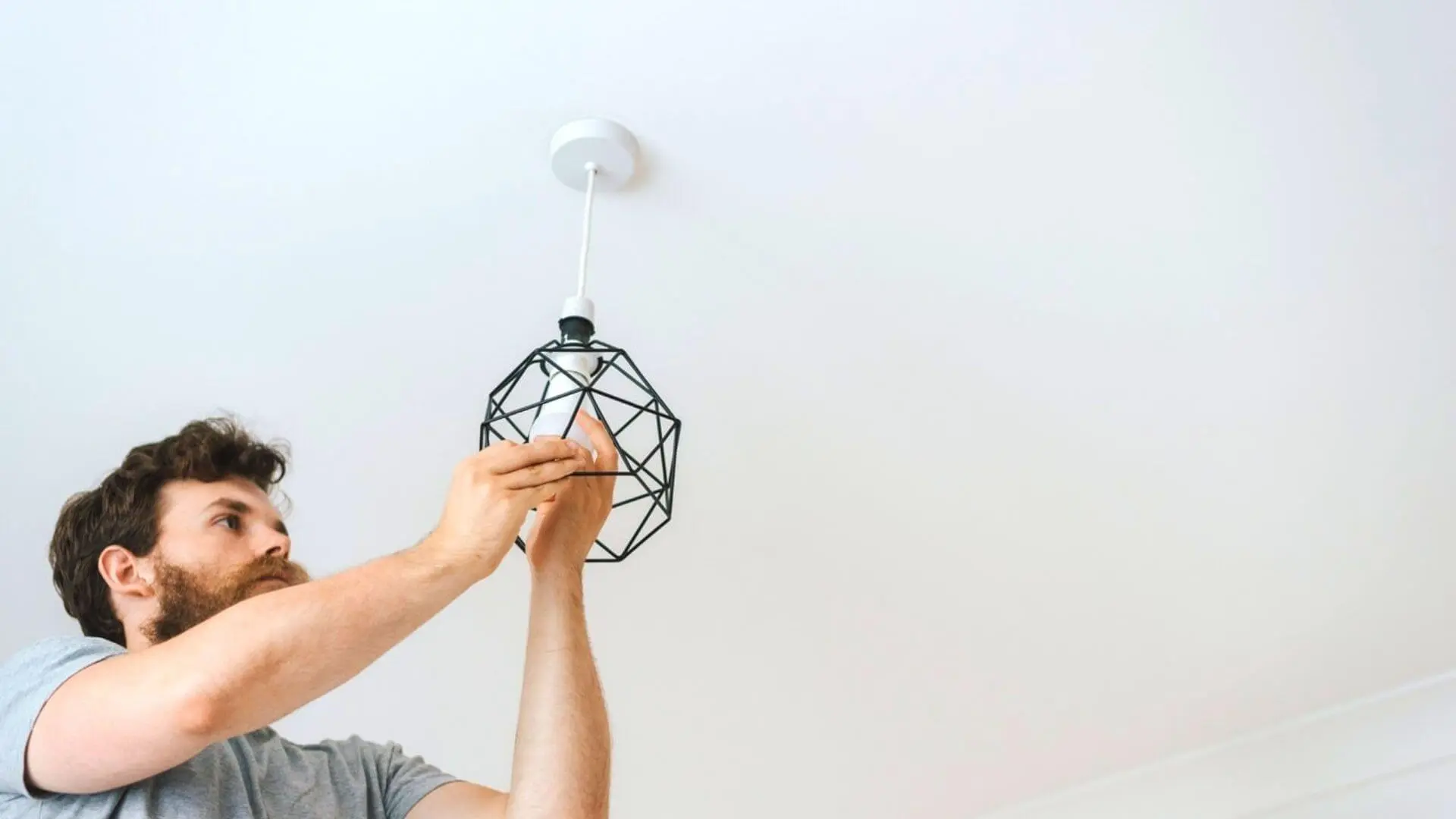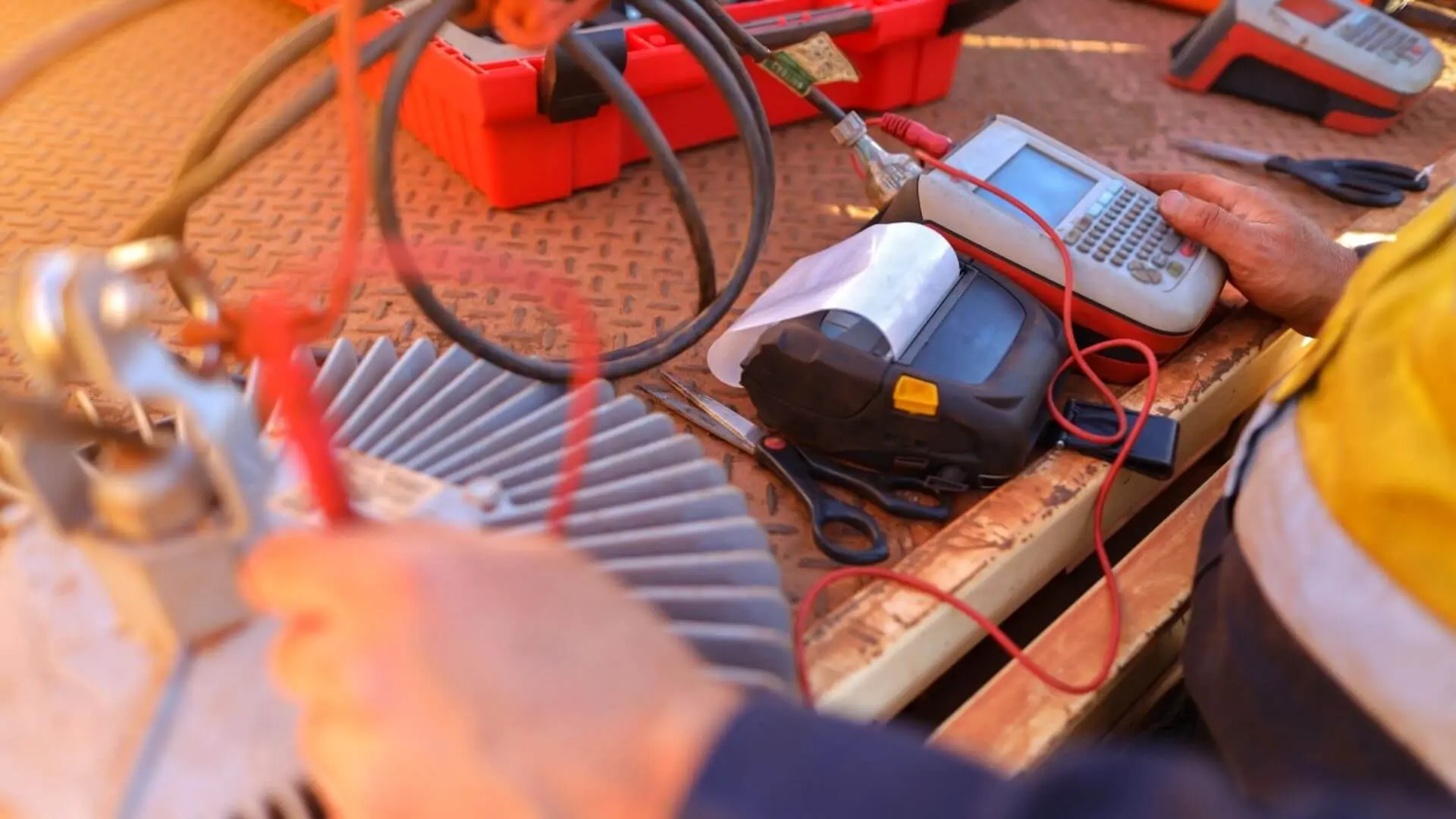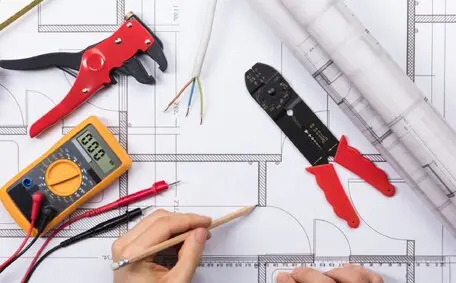While moving to a new home is thrilling, tackling issues in your current residence can be a bit tricky. It’s essential to be aware of various maintenance aspects to keep things running smoothly.
It’s no surprise that electricity is crucial to our daily life, powering our appliances and ensuring safety. Yet, many folks aren’t really familiar with how household electricity works or the usual problems that can crop up.
Many people overlook the initial signs of electrical troubles and end up recognising them after the damage is done. At that stage, these problems can pose hazards to the home and lead to costly repairs.
To help you out, we’ve outlined some common electrical issues frequently seen in Aussie homes. Understanding these can give you peace of mind and help you decide when it’s time to call a professional sparky.
5 Common Residential Electrical Issues
![Man Changing Light Bulb In Hanging Fixture Man Changing Light Bulb Hanging Fixture]()
1. Frequent Electrical Surges
Power surges occur when a sudden increase in the amount of charge flows through the power lines. One of the most common culprits that cause electrical surges is lightning strikes. But, it can also occur from damaged power lines in your home.
During a surge, the current in power outlets spikes dramatically, posing a threat to your appliances. That’s why it’s a good idea to unplug devices during a storm to prevent damage.
Occasional electrical surges are normal, but frequent ones can point to faulty circuits. The best move is to contact professional electricians who can diagnose the issue. They can also help you with installing a surge protector in your home to keep your devices safe.
2. Overloaded Circuit
Has it ever happened that the electric supply to your home on the same circuit suddenly stopped after plugging in a device? If so, it was most likely caused by the circuit breaker overloading.
Overloads can be caused by several things, like plugging in too many appliances simultaneously. This may cause circuit breakers to trip as a safety measure against electrical fires, which occur when an electrical system overheats.
Another common cause of circuit overloading is high-wattage bulbs paired with light switches and fixtures that can’t handle their power requirement. If you can’t find the wattage for an electrical fixture like a lamp or light fixture, it’s recommended to use dimmer switches or a bulb of 60 watts (to be on the safer side).
After tripping circuit breakers, you must reset them to restore the power supply. Modern homes are built to accommodate the latest high-power gadgets, so you won’t usually need to worry about the tripping circuit breaker frequently. But, if it becomes a recurring problem, your house might need an upgraded electrical system, so call an electrician with expertise in emergencies to fix the issue.
3. Electrical Shocks
There can be many electrical causes for this issue, from poor insulation work and faulty wiring to improper grounding. The problem might also lie with the appliance you’re trying to connect to a power outlet.
If you suspect an appliance or an outlet is giving out an electric shock, stop using it immediately and seek professional help.
Thankfully, the issue of electrical shock has decreased significantly due to improved electricity systems. However, people residing in houses or apartments older than 20 should be careful about it and hire electricians for regular maintenance. This is especially crucial if you have kids at home who constantly plug extension cords or various gadgets into power outlets.
4. Issues Related To Lights
Some of the most common electric issues involve lights. Often ignored, lights can help understand the health of the electrical system. If electrical problems like flickering lights and dim or fast-burning bulbs are shared, we recommend getting help from an electrician.
Flickering or dimming of lights often occurs due to loose electrical connections, such as loose wires, particularly when limited to a single fixture. It’s best to stop using the light that’s having an issue and get it fixed to avoid electrical problems such as overheating or electrical fire.
A typical issue in many households is light bulbs burning out quickly. This problem is common if you use bulbs with the wrong wattage. People often end up using bulbs of 100 watts in a 60-watt socket in hopes of brighter illumination. However, if you’re using a bulb with the correct wattage, the problem might be with the faulty electrical wiring of that socket.
Another standard issue people face is when a bulb gets too hot to touch. It’s known as overlamping, and once again, it stems from using a bulb of higher wattage with an incompatible socket.
When the bulb gets too hot, it can burn the insulation and cause problems due to poor wiring in the outlet. Luckily, overlapping can be detected by soot build-up around the socket and the bulb, so remember to change it as soon as you notice soot to avoid a potential disaster.
We want to point out that it’s best to hire a qualified electrician to thoroughly inspect any space before moving into a new house.
5. High Electricity Bill
Do you find the numbers off on your recent electricity bill? Even though it might be because you use too many appliances, a hefty bill can be a concern if it’s unusual for the household.
Rather than getting all worked up, you should keep track of the electricity consumption over the next few months before coming to any conclusion. If you are unsure about not using that much energy, the problem might be faulty wiring, electrical circuits, or defective appliances.
Apart from getting your home checked by an electrician, you can hopefully follow some steps to lower costs.
- Check if there’s a leak in the hot water system.
- Apart from the essentials, remove all other appliances, electrical devices and chargers from power outlets.
- Ensure you install electrical surge protectors with your ground fault circuit interrupters (G.F.C.I.) in the outlets.
- Try getting energy-saving appliances.
- I was opting for a more cost-effective electricity provider.
If you still can’t find a proper reason for the high bill, contact your electricity provider for more details.
![Residential Electrician Performing Safety Check Residential Electrician Performing Safety Check]()
Residential Electrical Systems
Above, we’ve detailed some common residential electrical issues you might encounter, including those associated with your fuse box. Now, you know how to detect whether there’s something wrong with your home’s entire electrical system.
Note that any issue in your home’s electricity system is considered hazardous and requires help from a licensed electrician. In addition to fixing any persisting matters, a professional will advise you about upgrading your home’s electrical components.
Don’t hesitate to contact Bright Force Electrical if you live in Sydney. We have a 24-hour team of expert electricians on call for any urgent residential electrical issue.
Follow the proper safety regulations for using electricity and refrain from attempting to fix an electrical problem alone. So, check your home for any of the above-mentioned electrical issues to stay safe!










